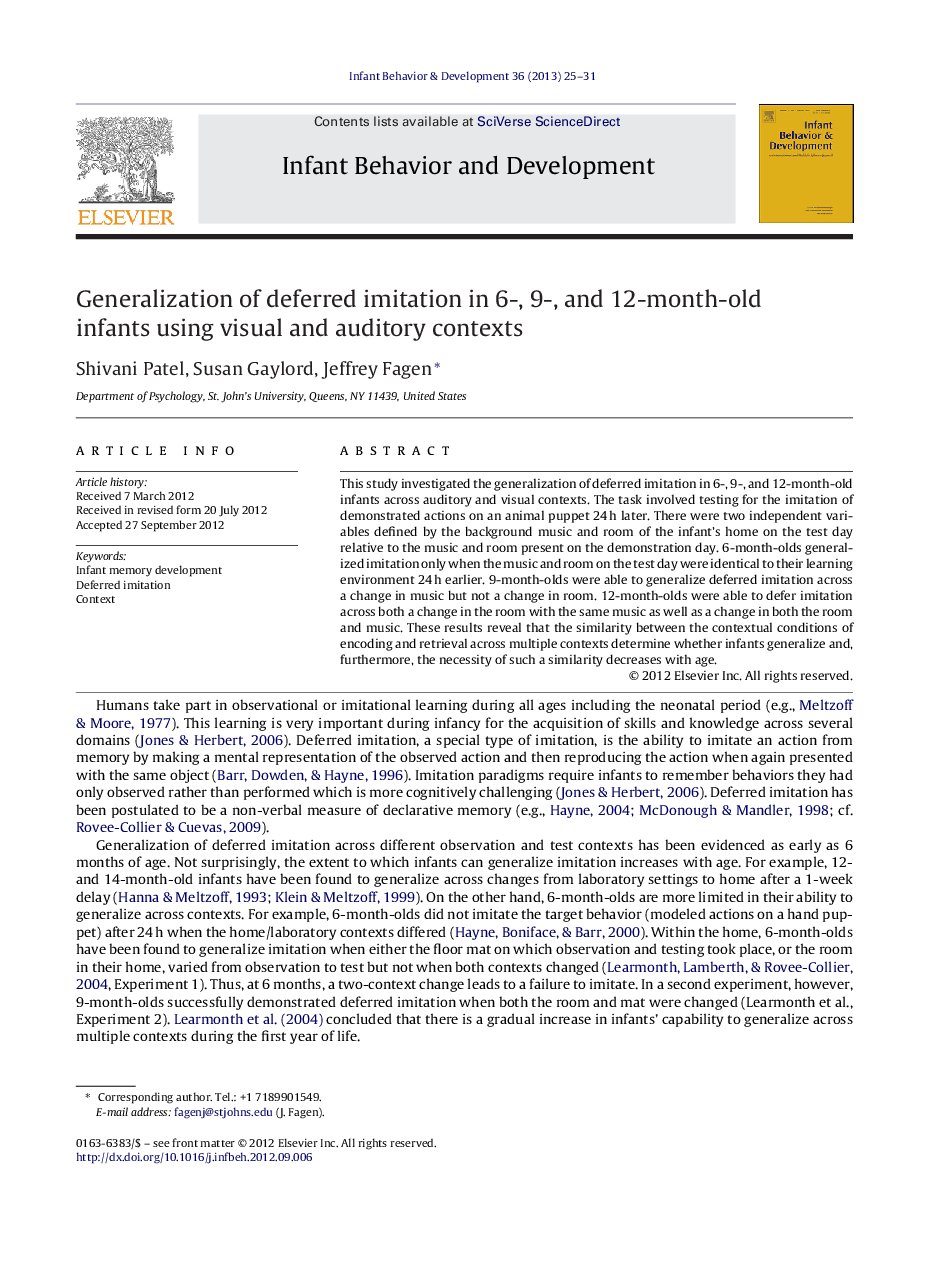| Article ID | Journal | Published Year | Pages | File Type |
|---|---|---|---|---|
| 917328 | Infant Behavior and Development | 2013 | 7 Pages |
This study investigated the generalization of deferred imitation in 6-, 9-, and 12-month-old infants across auditory and visual contexts. The task involved testing for the imitation of demonstrated actions on an animal puppet 24 h later. There were two independent variables defined by the background music and room of the infant's home on the test day relative to the music and room present on the demonstration day. 6-month-olds generalized imitation only when the music and room on the test day were identical to their learning environment 24 h earlier. 9-month-olds were able to generalize deferred imitation across a change in music but not a change in room. 12-month-olds were able to defer imitation across both a change in the room with the same music as well as a change in both the room and music. These results reveal that the similarity between the contextual conditions of encoding and retrieval across multiple contexts determine whether infants generalize and, furthermore, the necessity of such a similarity decreases with age.
► We studied generalization of deferred imitation in 6-, 9-, and 12-month-olds across auditory and visual contexts. ► 6-month-olds generalized imitation only when the music and room on the test day were identical. ► 9-month-olds only generalized deferred imitation across change in music. ► 12-month-olds generalized deferred imitation across change in music and room. ► Younger infants rely more on similarities between contexts during encoding and retrieval.
